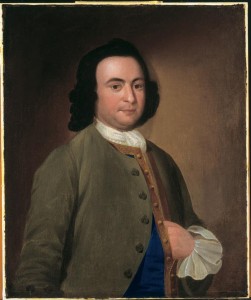This month commemorates the writing of the Virginia Declaration of Rights, largely the effort of a neighbor of George Washington’s. While Washington was trying to piece together a continental army in 1776, others were busily constructing constitutions for the states that were ready to break from Britain.
 That neighbor was George Mason. Drawing on a rich British heritage as well as newer developments in the colonies, Mason concocted a list of rights that set a standard for the era. Thomas Jefferson, up in Philadelphia at that time working on a declaration of independence, looked to Mason as one of his inspirations, and was receiving information from the Virginia convention that was finalizing the new Virginia constitution.
That neighbor was George Mason. Drawing on a rich British heritage as well as newer developments in the colonies, Mason concocted a list of rights that set a standard for the era. Thomas Jefferson, up in Philadelphia at that time working on a declaration of independence, looked to Mason as one of his inspirations, and was receiving information from the Virginia convention that was finalizing the new Virginia constitution.
What did Mason include in his Declaration of Rights? He clearly spelled out:
- Inherent rights cannot be surrendered by any compact
- Government power derives from the people
- Oppressive government may be altered or abolished
- The branches of government need to be separated
- It is essential that there be due process of law and jury trials
- No excessive bail or fines
- No cruel or unusual punishments
- No general search warrants [meaning the government cannot simply ransack one’s home looking for whatever]
- Freedom of the press will not be restrained
- A militia is essential to liberty
Some of these might look familiar. As I said, Jefferson drew from them, and the Bill of Rights that was later added to the Federal Constitution mirrored some of these concepts.
These were not backward people. They understood what makes government work and what constitutes tyranny. We should continue to study them and learn from them.
